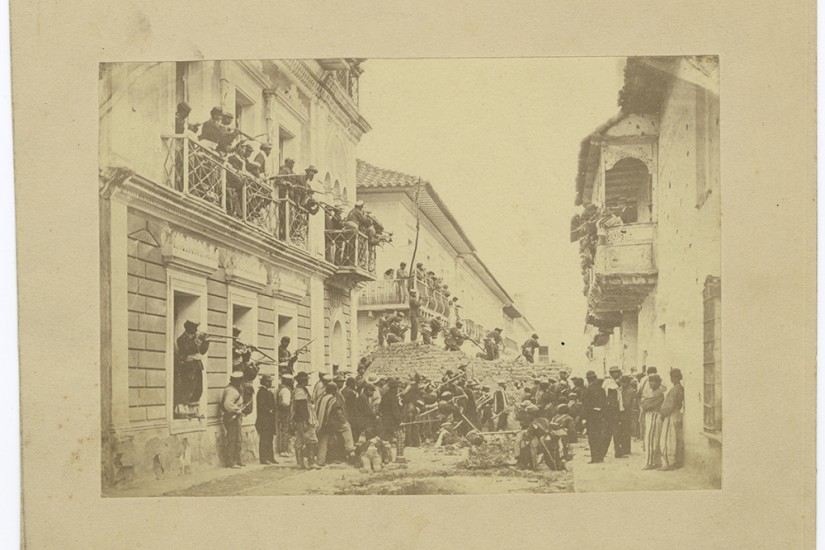Caitlin Fitz avoids Hegel’s prophesying, but she suggests the German philosopher might have been onto something. Our Sister Republics exhumes a forgotten moment in the history of the Americas, a time when residents of the newly formed United States came to see Latin Americans as partners in a shared revolutionary experiment. In the half century after the signing of the Declaration of Independence, she argues, faith in the egalitarian principles outlined by Thomas Jefferson trumped concerns about racial difference below the equator. That ecumenical attitude gave way in the 1820s to a rival interpretation of American exceptionalism grounded not in a common hemispheric project but in the dream of a white man’s republic. With another Independence Day around the corner, the legacies of both visions are more present than ever.
Timothy Shenk: Drunken revelry plays a larger part in this book than in any other work of history I’ve come across. Toasts, in particular, supply you with a considerable amount of material. What were people in the United States saying while they were drinking?
Caitlin Fitz: If it’s true that people are more honest when they’re drunk, then my book certainly speaks the truth! (But kidding aside, I worked from printed transcripts of toasts, which were drafted and edited in more sober moments.) I studied July Fourth toasts in particular, because newspaper editors widely reprinted them. People said lots of what you’d expect—they toasted the founding fathers, the Declaration, their favorite political candidates and governing principles. But I was stunned to find how often they also talked about South Americans, who were in the throes of their own independence wars between about 1808 and 1825. I sampled almost 900 July Fourth party transcripts, and I found that in the decade after the War of 1812, more than half of the celebrations recorded toasts to Latin America. The reason was that even though Latin American independence stemmed more from the Napoleonic Wars than from the spirit of 1776, July Fourth patriots gave themselves credit. They saw their neighbors south of the border as fellow American revolutionaries, and they were proud to imagine that they had inspired it all.
